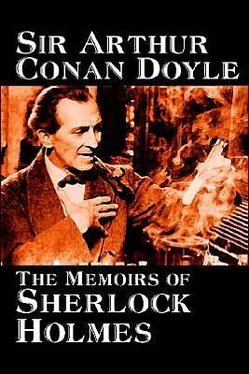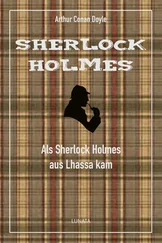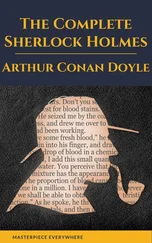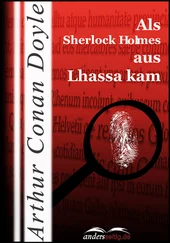Arthur Doyle - Memoirs of Sherlock Holmes
Здесь есть возможность читать онлайн «Arthur Doyle - Memoirs of Sherlock Holmes» весь текст электронной книги совершенно бесплатно (целиком полную версию без сокращений). В некоторых случаях можно слушать аудио, скачать через торрент в формате fb2 и присутствует краткое содержание. Город: London, Год выпуска: 2004, ISBN: 2004, Издательство: Wildside Press LLC, Жанр: Классический детектив, на английском языке. Описание произведения, (предисловие) а так же отзывы посетителей доступны на портале библиотеки ЛибКат.
- Название:Memoirs of Sherlock Holmes
- Автор:
- Издательство:Wildside Press LLC
- Жанр:
- Год:2004
- Город:London
- ISBN:0809594366
- Рейтинг книги:3 / 5. Голосов: 1
-
Избранное:Добавить в избранное
- Отзывы:
-
Ваша оценка:
- 60
- 1
- 2
- 3
- 4
- 5
Memoirs of Sherlock Holmes: краткое содержание, описание и аннотация
Предлагаем к чтению аннотацию, описание, краткое содержание или предисловие (зависит от того, что написал сам автор книги «Memoirs of Sherlock Holmes»). Если вы не нашли необходимую информацию о книге — напишите в комментариях, мы постараемся отыскать её.
Memoirs of Sherlock Holmes — читать онлайн бесплатно полную книгу (весь текст) целиком
Ниже представлен текст книги, разбитый по страницам. Система сохранения места последней прочитанной страницы, позволяет с удобством читать онлайн бесплатно книгу «Memoirs of Sherlock Holmes», без необходимости каждый раз заново искать на чём Вы остановились. Поставьте закладку, и сможете в любой момент перейти на страницу, на которой закончили чтение.
Интервал:
Закладка:
“The Worthingdon bank gang,” cried the inspector.
“Precisely,” said Holmes.
“Then Blessington must have been Sutton.”
“Exactly,” said Holmes.
“Why, that makes it as clear as crystal,” said the inspector.
But Trevelyan and I looked at each other in bewilderment.
“You must surely remember the great Worthingdon bank business,” said Holmes. “Five men were in it—these four and a fifth called Cartwright. Tobin, the care-taker, was murdered, and the thieves got away with seven thousand pounds. This was in 1875. They were all five arrested, but the evidence against them was by no means conclusive. This Blessington or Sutton, who was the worst of the gang, turned informer. On his evidence Cartwright was hanged and the other three got fifteen years apiece. When they got out the other day, which was some years before their full term, they set themselves, as you perceive, to hunt down the traitor and to avenge the death of their comrade upon him. Twice they tried to get at him and failed; a third time, you see, it came off. Is there anything further which I can explain, Dr. Trevelyan?”
“I think you have made it all remarkable clear,” said the doctor. “No doubt the day on which he was perturbed was the day when he had seen of their release in the newspapers.”
“Quite so. His talk about a burglary was the merest blind.”
“But why could he not tell you this?”
“Well, my dear sir, knowing the vindictive character of his old associates, he was trying to hide his own identity from everybody as long as he could. His secret was a shameful one, and he could not bring himself to divulge it. However, wretch as he was, he was still living under the shield of British law, and I have no doubt, Inspector, that you will see that, though that shield may fail to guard, the sword of justice is still there to avenge.”
Such were the singular circumstances in connection with the Resident Patient and the Brook Street Doctor. From that night nothing has been seen of the three murderers by the police, and it is surmised at Scotland Yard that they were among the passengers of the ill-fated steamer Norah Creina, which was lost some years ago with all hands upon the Portuguese coast, some leagues to the north of Oporto. The proceedings against the page broke down for want of evidence, and the Brook Street Mystery, as it was called, has never until now been fully dealt with in any public print.
Adventure IX.
The Greek Interpreter
During my long and intimate acquaintance with Mr. Sherlock Holmes I had never heard him refer to his relations, and hardly ever to his own early life. This reticence upon his part had increased the somewhat inhuman effect which he produced upon me, until sometimes I found myself regarding him as an isolated phenomenon, a brain without a heart, as deficient in human sympathy as he was pre-eminent in intelligence. His aversion to women and his disinclination to form new friendships were both typical of his unemotional character, but not more so than his complete suppression of every reference to his own people. I had come to believe that he was an orphan with no relatives living, but one day, to my very great surprise, he began to talk to me about his brother.
It was after tea on a summer evening, and the conversation, which had roamed in a desultory, spasmodic fashion from golf clubs to the causes of the change in the obliquity of the ecliptic, came round at last to the question of atavism and hereditary aptitudes. The point under discussion was, how far any singular gift in an individual was due to his ancestry and how far to his own early training.
“In your own case,” said I, “from all that you have told me, it seems obvious that your faculty of observation and your peculiar facility for deduction are due to your own systematic training.”
“To some extent,” he answered, thoughtfully. “My ancestors were country squires, who appear to have led much the same life as is natural to their class. But, none the less, my turn that way is in my veins, and may have come with my grandmother, who was the sister of Vernet, the French artist. Art in the blood is liable to take the strangest forms.”
“But how do you know that it is hereditary?”
“Because my brother Mycroft possesses it in a larger degree than I do.”
This was news to me indeed. If there were another man with such singular powers in England, how was it that neither police nor public had heard of him? I put the question, with a hint that it was my companion’s modesty which made him acknowledge his brother as his superior. Holmes laughed at my suggestion.
“My dear Watson,” said he, “I cannot agree with those who rank modesty among the virtues. To the logician all things should be seen exactly as they are, and to underestimate one’s self is as much a departure from truth as to exaggerate one’s own powers. When I say, therefore, that Mycroft has better powers of observation than I, you may take it that I am speaking the exact and literal truth.”
“Is he your junior?”
“Seven years my senior.”
“How comes it that he is unknown?”
“Oh, he is very well known in his own circle.”
“Where, then?”
“Well, in the Diogenes Club, for example.”
I had never heard of the institution, and my face must have proclaimed as much, for Sherlock Holmes pulled out his watch.
“The Diogenes Club is the queerest club in London, and Mycroft one of the queerest men. He’s always there from quarter to five to twenty to eight. It’s six now, so if you care for a stroll this beautiful evening I shall be very happy to introduce you to two curiosities.”
“Five minutes later we were in the street, walking towards Regent’s Circus.
“You wonder,” said my companion, “why it is that Mycroft does not use his powers for detective work. He is incapable of it.”
“But I thought you said—”
“I said that he was my superior in observation and deduction. If the art of the detective began and ended in reasoning from an arm-chair, my brother would be the greatest criminal agent that ever lived. But he has no ambition and no energy. He will not even go out of his way to verify his own solution, and would rather be considered wrong than take the trouble to prove himself right. Again and again I have taken a problem to him, and have received an explanation which has afterwards proved to be the correct one. And yet he was absolutely incapable of working out the practical points which must be gone into before a case could be laid before a judge or jury.”
“It is not his profession, then?”
“By no means. What is to me a means of livelihood is to him the merest hobby of a dilettante. He has an extraordinary faculty for figures, and audits the books in some of the government departments. Mycroft lodges in Pall Mall, and he walks round the corner into Whitehall every morning and back every evening. From year’s end to year’s end he takes no other exercise, and is seen nowhere else, except only in the Diogenes Club, which is just opposite his rooms.”
“I cannot recall the name.”
“Very likely not. There are many men in London, you know, who, some from shyness, some from misanthropy, have no wish for the company of their fellows. Yet they are not averse to comfortable chairs and the latest periodicals. It is for the convenience of these that the Diogenes Club was started, and it now contains the most unsociable and unclubable men in town. No member is permitted to take the least notice of any other one. Save in the Stranger’s Room, no talking is, under any circumstances, allowed, and three offences, if brought to the notice of the committee, render the talker liable to expulsion. My brother was one of the founders, and I have myself found it a very soothing atmosphere.”
Читать дальшеИнтервал:
Закладка:
Похожие книги на «Memoirs of Sherlock Holmes»
Представляем Вашему вниманию похожие книги на «Memoirs of Sherlock Holmes» списком для выбора. Мы отобрали схожую по названию и смыслу литературу в надежде предоставить читателям больше вариантов отыскать новые, интересные, ещё непрочитанные произведения.
Обсуждение, отзывы о книге «Memoirs of Sherlock Holmes» и просто собственные мнения читателей. Оставьте ваши комментарии, напишите, что Вы думаете о произведении, его смысле или главных героях. Укажите что конкретно понравилось, а что нет, и почему Вы так считаете.












